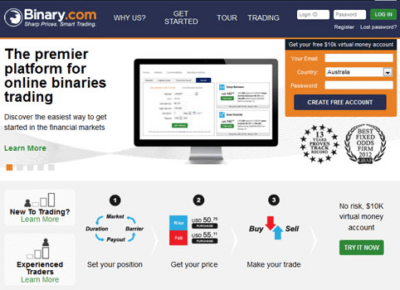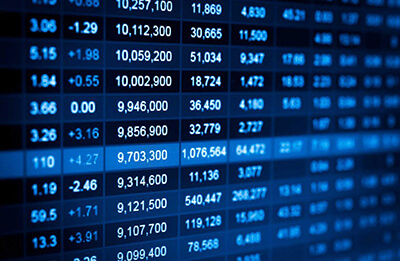Forex vs Stock Trading: Which one is better?
Contents
National currencies, or the foreign exchange market is the largest in the world with over $5 trillion in volume traded each day. There are some big differences when comparing these markets and I wanted to discuss some of the most important factors that separate them. While both a great for both short-term and long-term traders they have different behaviors due to one being traded 24/7 while the other is only traded during “office hours”. This is of course something that can be analyzed and later predicted, but it’s something to keep in mind going forward. As you can see in the table above, there are some things that separate these three asset classes.
The comparative freedom from regulation on the forex and its high degree of possible leveraging makes it easy to control large trades. If you’re eager to start trading large amounts of capital, forex lexatrade review trading is for you. John Russell is an expert in domestic and foreign markets and forex trading. He has a background in management consulting, database administration, and website planning.
The following overview will make it easier for you to compare stocks and forex. There’s no need to have a large account with the largest discount broker to make money trading. But stocks come with lower liquidity and may be slower to turn into a profit. Forex spreads are quite transparent compared to costs of trading other contracts.
Although they’re not the same, they’re both direct investments and working towards their goals differently. If you’re hoping to get rich by investing, you’ll want to consider how both can be used to your advantage. More stable price patterns over time, which makes them easier to track. Those looking for more stability over a longer period of time would probably consider equities a better option.
Comparing Market Accessibility of Forex and Stocks
Many traders can use currency correlations to predict future market movements when opening positions within both markets. Although there are significant differences between forex and stocks, they often work well together when analysing technical trading patterns. However, they are less risky and as such, offer stable and more predictable outcomes.

When the price hits your stop loss, the broker will try to close it at that price. The spread is the distance between the buy and sell pending orders. The less leverage you use, meaning lower lot sizes, the safer you will be trading. The way to restrict the leverage that you use is by trading smaller lot sizes or amounts. Depending on which part of the world you are, you may even have more restrictions regarding leverage and required margins.
– Liquidity
You can trade on thousands of global shares within the technology, pharmaceutical and automobile industries. Some of the most distinguished global indices are traded on the stock market, such as the Dow Jones Index and S&P 500. Spread bets and CFDs are complex instruments and come with a high risk of losing money rapidly due to leverage. 79% trend envelopes indicator of retail investor accounts lose money when spread betting and/or trading CFDs with this provider. You should consider whether you understand how spread bets and CFDs work and whether you can afford to take the high risk of losing your money. Please note that foreign exchange and other leveraged trading involves significant risk of loss.

The opening hours of a market can have a significant influence over your trading, impacting the time you will need to spend monitoring the markets. In addition, active traders may be eligible to choose the mark-to-market status for IRS purposes, which allows deductions for trading-related expenses, such as platform fees or education. Specific elements to compare include volatility, leverage, and market trading hours. For example, before the global recession of 2008 began, investors noticed a trend between the Nikkei stock index and the USD/JPY currency pair. As the Nikkei declined, investors would take this as a sign of weakness for the Japanese economy, and in turn, the USD would strengthen against the JPY.
Forex Vs Stocks: Top Differences & How to Trade Them
One risk of shorting a stock, at least in theory, is that you may have unlimited losses. In reality, that’s unlikely to happen because your broker will probably force you to end the short position. Nevertheless, most financial advisors caution against shorting for all, and many of the most experienced investors execute parallel stop-loss and limit orders to contain this risk. In sharp contrast, forex trades of several hundred million dollars in a major currency will most likely have little—or no—impact on the currency’s market price.
For example, the New York Stock Exchange operates a core trading session between 9.30am and 4pm Eastern Time. When making a trade you will always be either BUYING or SELLING the first named currency in the quoted currency pair. A trader who buys euros in the EUR/USD market believes the euro is set to perform better relative to the dollar; a trader who sells in this market believes the opposite will be the case.
- What I find differentiates them the most is the trading hours, the regulation and safety of the trading platforms, the leverage ratios, and the difficulty to trade.
- Slippage is the distance between the price where you set your order to open and the price where that actually occurs.
- For instance, you can look for a stock that moves more than a certain dollar amount in terms of price in a day on average.
- All three rely on the law of supply and demand, though fiat currencies and stocks have measurable values, while crypto currencies are purely speculative up to this point.
Many forex strategies work to open and close positions in a short period of time, with the intention of making a profit from small price movements when the market is particularly volatile. Price volatility is a hot subject in the forex trading vs. stock trading discussion. This metric tracks market rate changes, which may assist investors make money if the transaction is completed correctly or lose money if the transaction is not profitable. Market participants, in general, seek out markets with strong liquidity since this indicates that an item may be purchased and traded quickly without making a significant impact on its value. As a result, excessive economic uncertainty is more positioned to gain short-term investors. Whenever the marketplace is volatile, several forex techniques aim to initiate and close trades in a brief span of time.
Forex vs Stocks Trading: Which is Better for Beginners?
A significant difference between forex and stocks is the immense size of the forex market. Though the stock market opportunities seem limitless, it does not come close to the forex trade volume, which stands at around $6 trillion each day. Most forex traders concentrate on a few major pairs like EUR/USD, USD/JPY, GBP/USD, and AUD/USD, as these pairs tend to be relatively stable within the forex market.
Forex trading Vs stock trading: the main differences
That isn’t to imply you shouldn’t engage in trading shares at all. The stock exchange may be more suitable for your temperament when you are engaged in investment or longer-term trading. You can trade Forex with any size account, and it is unnecessary to have a prominent account to do well. Currency exchange rates are constantly changing due to supply and demand for currencies.
The volatility of the trading market is a popular topic in the forex vs stocks debate. Volatility measures price changes in the market, which can either help traders make profits if they execute their trades properly or cause losses if they don’t. The forex market is a place in which traders tend to seek high liquidity, as this means an asset can be bought and sold quickly without impacting its value too much. This is the most common question that confronts today’s newer generation of investors and traders, who are selective and peculiar in choosing investment opportunities.
Technical analysis is very dominant in stocks where trend lines, support level, and resistance levels are very popular. Stable movements – FX is a more stable marketplace superforex broker review in general and there are fewer surprises than in bitcoin trading for example. If you learn how to technically predict national currencies you are in for a good run.
If you have a low tolerance for risk or want to trade in a financial market that doesn’t rush you or put you at risk levels you cannot handle. Yes, in a way coins and stocks are both pieces of ownership in a company where the business sells part of its company in order to raise capital. However, the structure of how a cryptocurrency is set up is completely different from stocks. The behavior of these markets is also very different whereas cryptocurrencies are very traded on heavy emotion compared to stocks that are traded more based on earnings potential. If you are choosing between these two asset classes you should know some things before you make your final decision. There are traders that are much better off leverage trading stocks than digital assets and of course the other way around.


Leave a Reply
Want to join the discussion?Feel free to contribute!